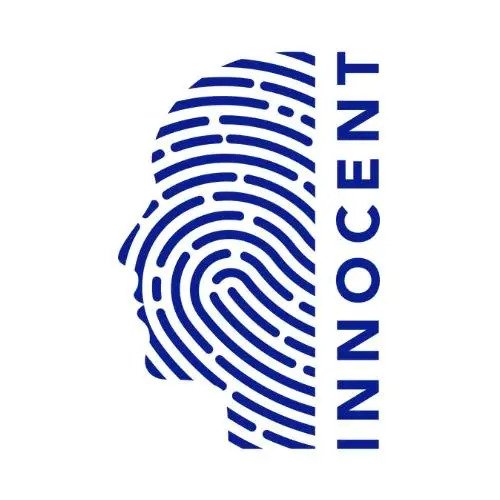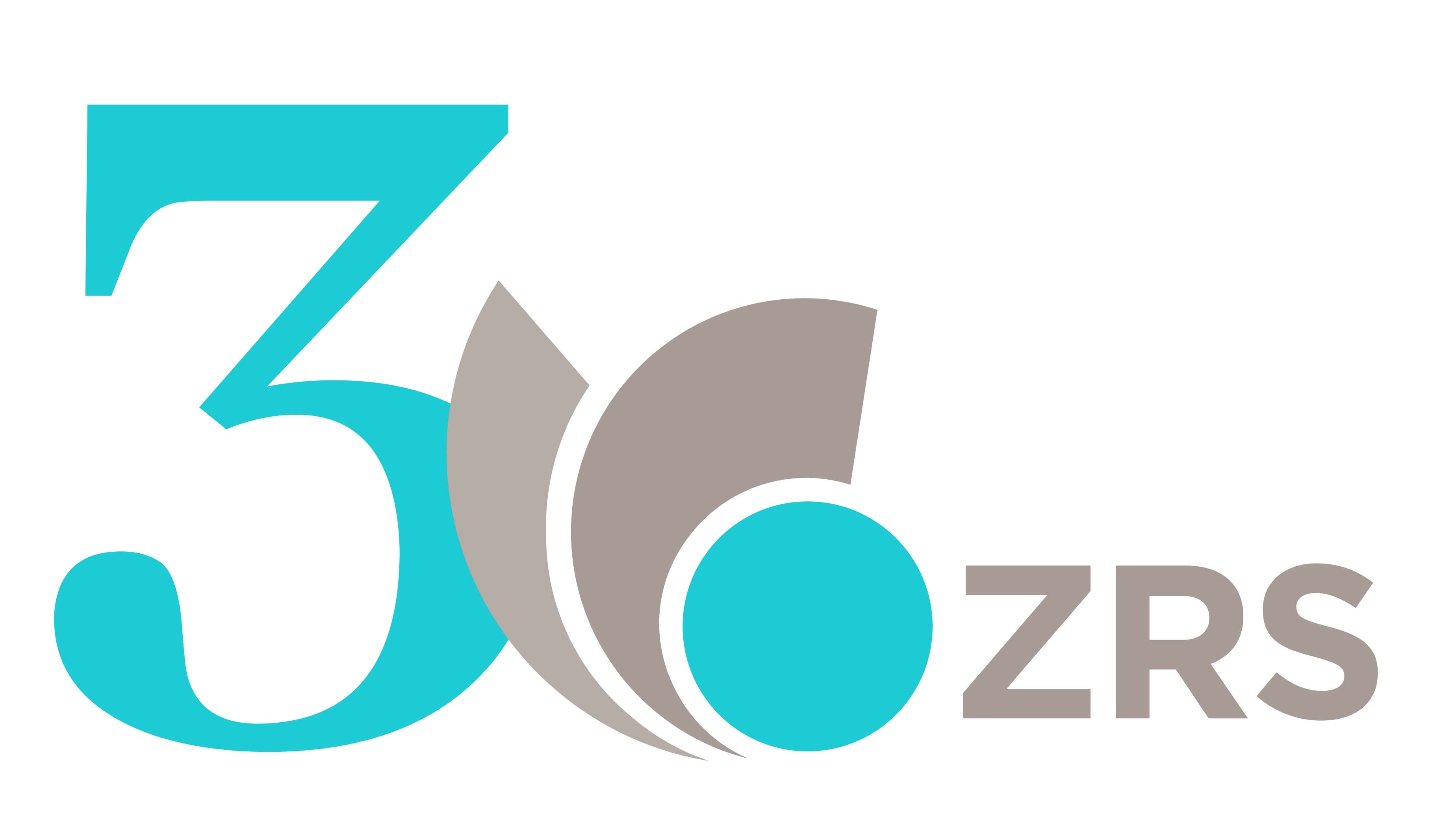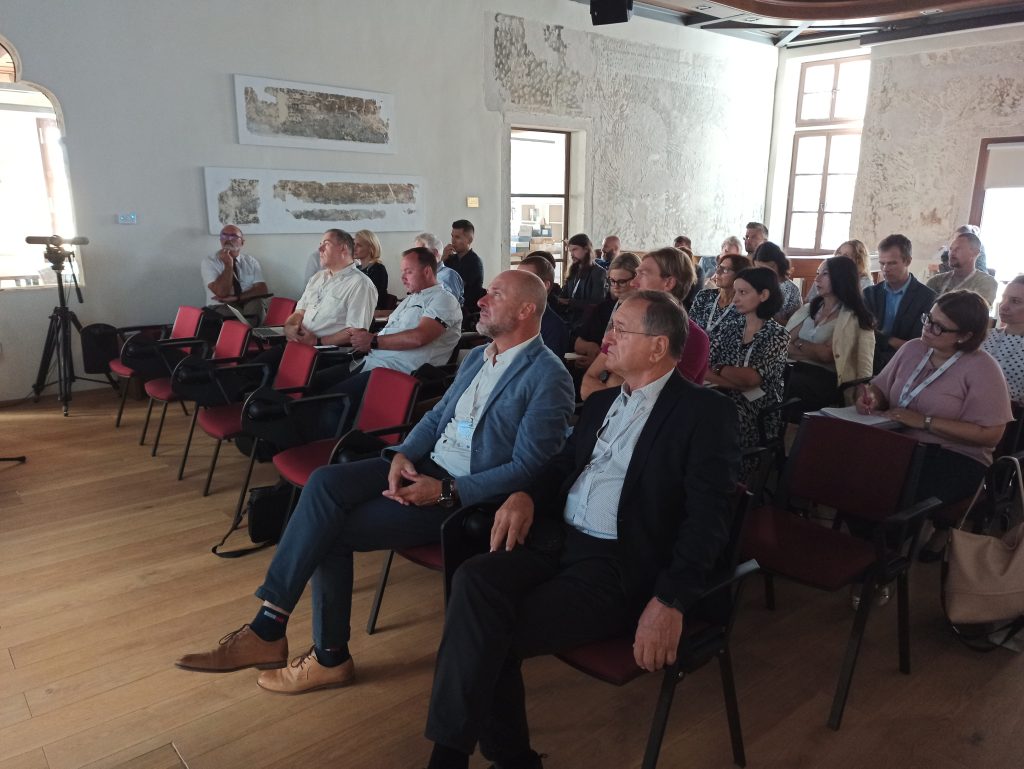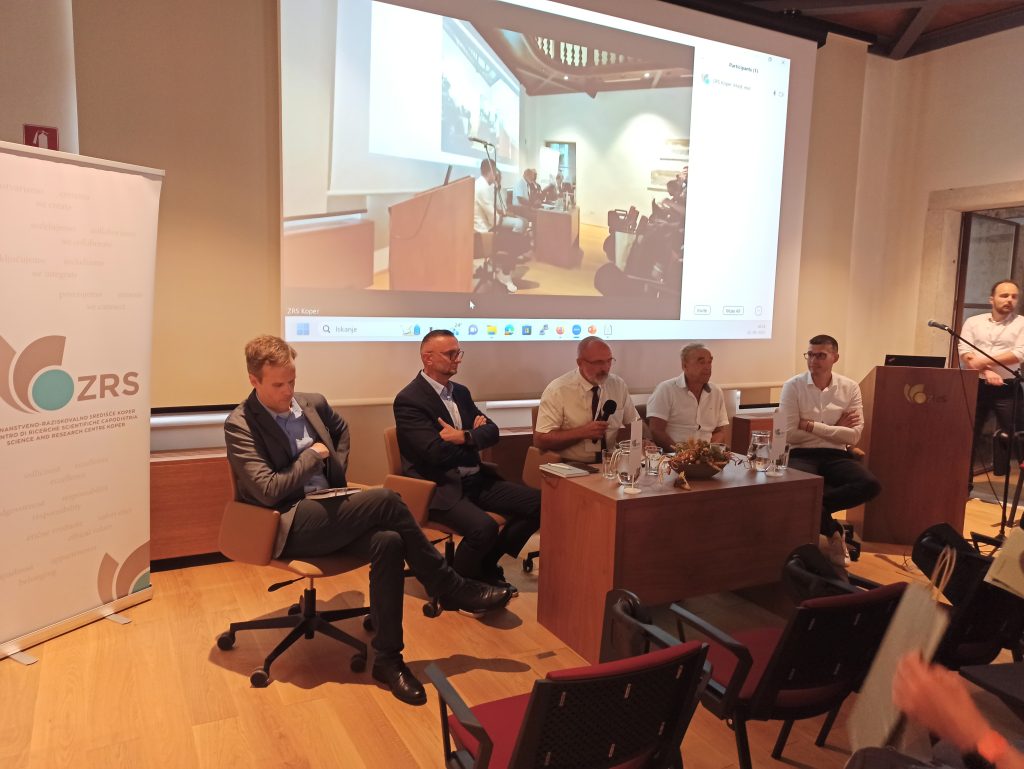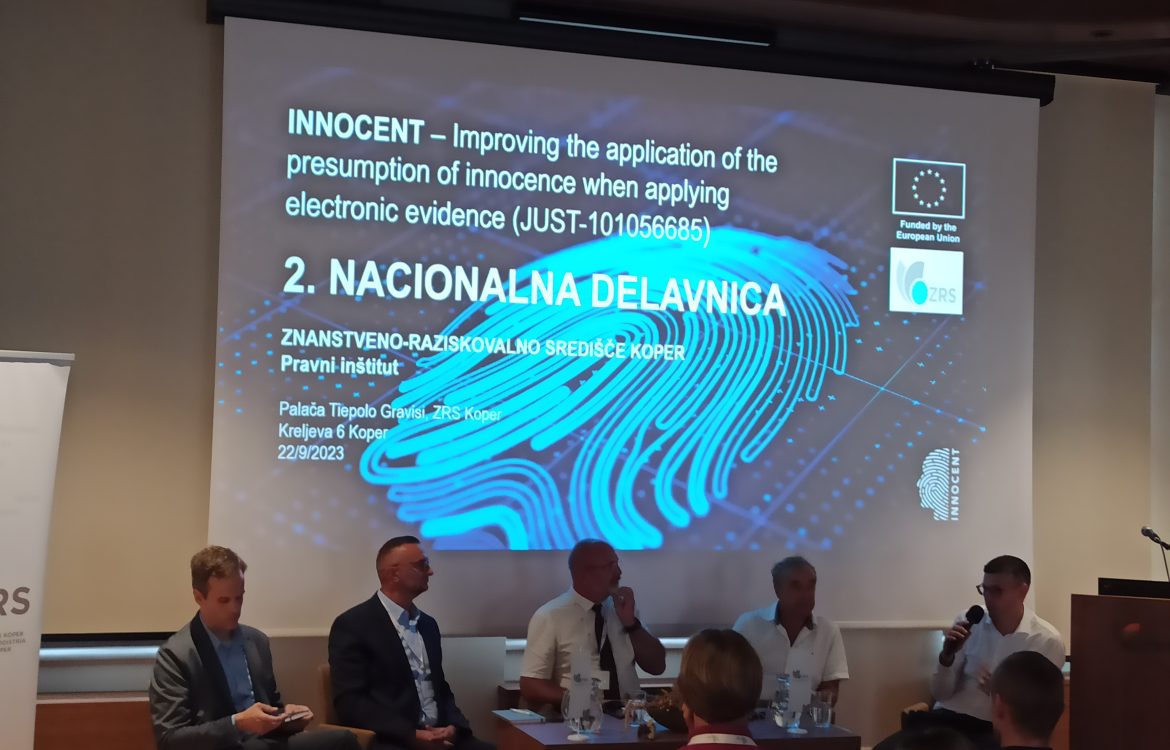
Project INNOCENT: National workshop on the use of electronic evidence in criminal proceedings
On September 22, 2023, the Institute of Law at ZRS Koper hosted its second national workshop at the Tiepolo Gravisi Palace in Koper as part of the international project INNOCENT – The Improving the application of the presumption of iNNOCEnce when applying elecTronic evidence (GA No. 101056685).
The workshop drew more than forty participants, including judges, investigative judges, and legal professionals from the criminal departments of general jurisdiction courts, state prosecutors, and lawyers. Additionally, lecturers from Slovenian law faculties were among the attendees. The conference featured an address by Prof. Dr. Rado Pišot, the Director of the Science and Research Centre Koper.
The speakers delved into key aspects surrounding the use of electronic evidence in criminal proceedings. This encompassed topics such as the collection, preservation, and storage of electronic data, the judicial assessment of the authenticity of e-data submitted as evidence, as well as the utilization and exclusion of electronic evidence. A particular focus was directed toward the new European legislation (regulation and directive) governing the cross-border acquisition and transmission of electronic data or evidence. The workshop program also included contributions that explored police investigations involving electronic devices and data, as well as the role of expert witnesses in criminal proceedings where electronic evidence is pivotal. A dedicated section was reserved for the proposed European legislation concerning artificial intelligence and its application in criminal proceedings.

The workshop concluded with a roundtable discussion, during which a significant discourse emerged between two fundamental imperatives of criminal procedure – namely, the effectiveness of criminal prosecution and the assurance of societal safety on one hand, and a fair criminal procedure on the other. This discussion revolved around issues related to the acquisition, preservation, exclusion, and utilization of electronic evidence in light of the presumption of innocence. Workshop participants actively engaged in the discussion, offering questions and diverse viewpoints.
As part of the project, a toolkit will be developed primarily for judges, lawyers, and prosecutors within the European Union who increasingly face dilemmas related to electronic evidence.
